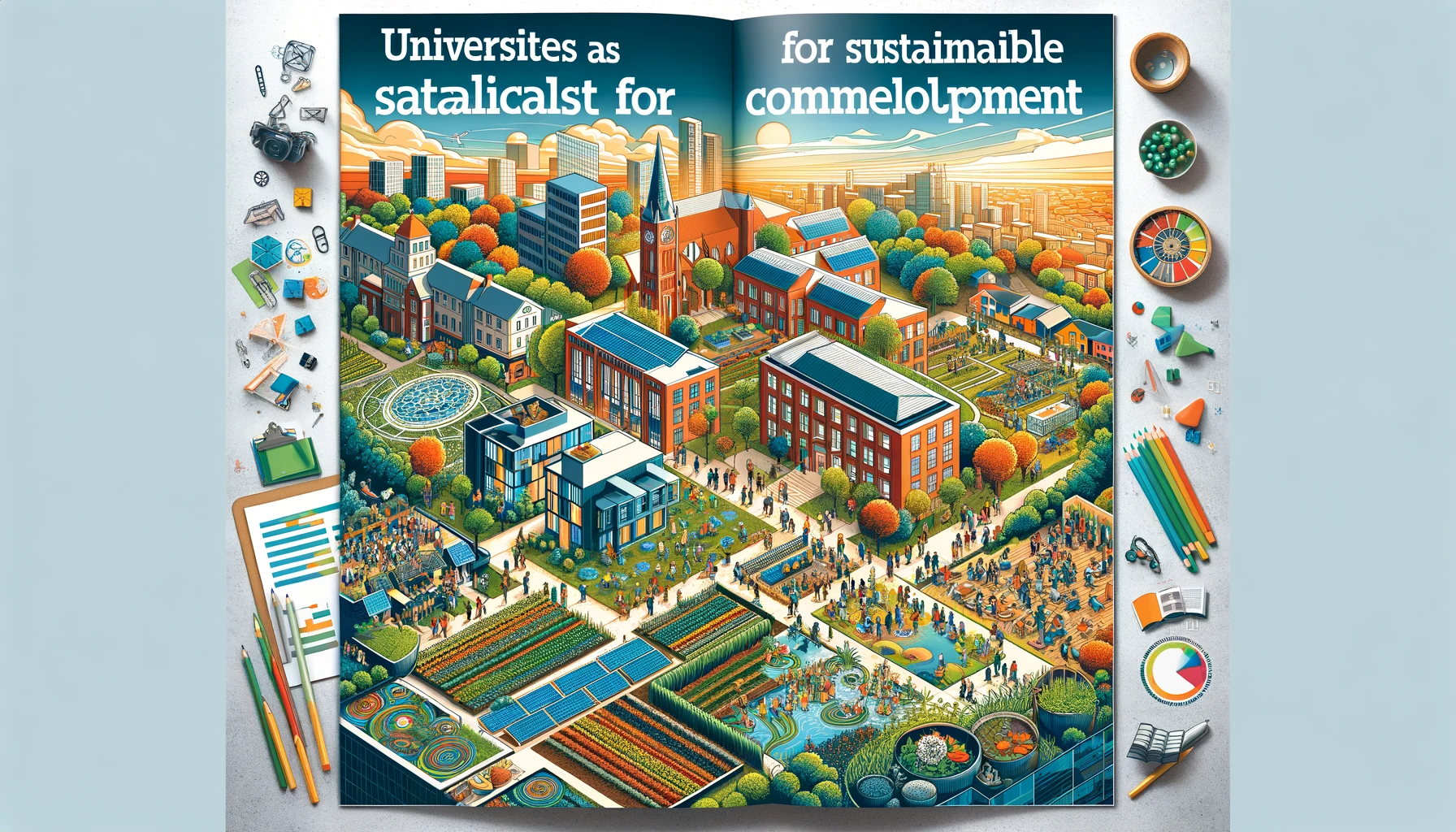Universities have a unique and vital role to play in the global quest for sustainability. As institutions of knowledge and innovation, they can significantly contribute to local communities’ sustainability efforts. They can do so by shaping a future generation of environmentally-conscious leaders, fostering innovative research, and actively engaging in community activities and initiatives promoting sustainability (Blewitt & Cullingford, 2013).
Firstly, through their educational mission, universities can inculcate a culture of sustainability among students. Embedding sustainability concepts in the curriculum across disciplines fosters an understanding of the interconnectedness of societal, environmental, and economic systems (Jones, Selby & Sterling, 2010). This creates a powerful platform for students to develop skills and knowledge that can drive sustainable transformation in their future roles in society.
Moreover, universities are at the forefront of sustainability research, offering solutions to pressing local and global environmental challenges (Santos, 2016). This research can directly contribute to sustainable community development, with universities working with local partners to pilot innovative solutions in real-world contexts.
Lastly, universities can actively participate in community activities aimed at promoting sustainability. This can take the form of collaborative projects, volunteering efforts, or community-based learning. For example, university-community partnerships in areas like urban agriculture, waste management, and energy conservation can have significant local impacts (Fitzgerald, 2010).
Such community engagement also enables reciprocal learning, with universities benefiting from community knowledge and expertise. This can help tailor academic research to meet community needs and inform the development of relevant, locally-focused curricula (Bender, 2008).
In conclusion, universities, by intertwining their educational, research, and community engagement roles, can significantly contribute to sustainable community development. As catalysts for sustainability, they can shape not only the minds of future leaders but also the communities they inhabit, driving a holistic and lasting change towards sustainability.
References:
- Blewitt, J., & Cullingford, C. (Eds.). (2013). The sustainability curriculum: The challenge for higher education. London: Earthscan.
- Jones, P., Selby, D., & Sterling, S. (2010). Sustainability Education: Perspectives and Practice Across Higher Education. London: Earthscan.
- Santos, R. (2016). Universities and regional development: A critical assessment of tensions and contradictions. London: Routledge.
- Fitzgerald, H. E. (2010). The Centrality of Engagement in Higher Education. Journal of Higher Education Outreach and Engagement, 15(3), 7-28.
- Bender, T. (2008). The unending frontier: An environmental history of the early modern world. Berkeley, CA: University of California Press.


